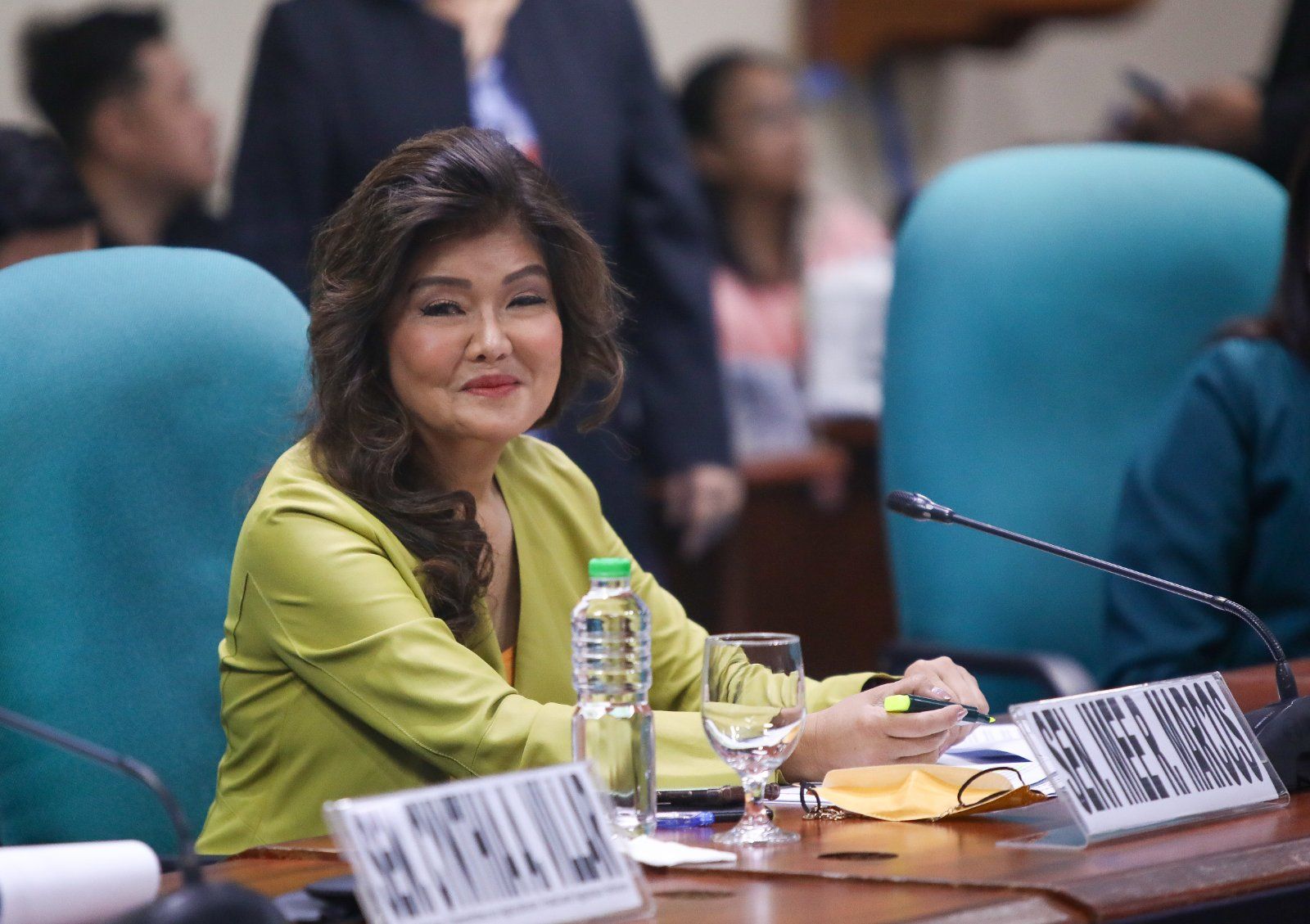Imee prods NEDA to reveal meeting details leading to rice tariff cut
By Dhel Nazario
Senator Imee Marcos has called on the National Economic Development Authority to publicize the details of its board meeting that led to the government’s controversial decision to cut the tariff on imported rice to 15 percent up to 2028.

Marcos was referring to the NEDA board meeting held last June 3, 2024. No other than NEDA Secretary Arsenio M. Balisacan announced the reduction tariff on rice from 35 percent to 15 percent and additional government subsidies the following day on June 4.
President Marcos, who chairs the NEDA Board, approved the new Comprehensive Tariff Program for 2024-2028, which extended tariff rates until 2028.
Yet according to her sister, it was established during Thursday’s senate hearing into proposed amendments to the Rice Tariffication Law (RA No. 11203) and Rice Competitiveness Enhancement Fund (RA No. 8178), that the proposal did not come from agricultural stakeholders, and was never raised during three consultative hearings of the Tariff Commission in 2023.
“Bigla na lang sumulpot ito sa NEDA Board noong June 3. Hihingin po namin, hangga’t kaya, kung sinu-sino ang nagpunta (NEDA Board meeting) at kung may transcript na ibibigay. Kung kinakailangan, mag-e-executive session para lang malaman natin ang ugat nitong EO 62 (Modifying the Nomenclature and Rates of Import Duty on Various Products) (This suddenly came out on June 3. We will ask, as long as we could the names of those who attended [the NEDA board meeting] and if there will be a transcript given. If needed, there will be an executive session to know the root of this EO 62)," she said.
“Clearly, this was a small meeting. It was just a board meeting, right? So it can hardly be considered a public hearing with stakeholders and others,” she added.
The NEDA Board comprises the President as chairperson, and NEDA Secretary as vice-chairperson, with the following members: the Executive Secretary, Special Assistant to the President for Investment and Economic Affairs, Secretary of Finance, and Secretary of Budget and Management.
The senator noted that in the transcripts of the March, September, and October 2023 consultative meetings and public hearings held by the Tariff Commission, there was no single mention of a 15 percent rice tariff rate taking effect for a period of 4 and a half years.
Commissioner Marissa Paderon explained that proposed changes to the tariff lines “come from the parties” present during the meetings.
“Sa pagbasa ng transcript na yan (In reading that transcript), was there any new tariff rate on rice proposed or discussed? Wala po akong makita. Sa buong transcript, wala umangal, walang nagsabi ibagsak sa kinse porsyento ang taripa. Wala akong nakita sa buong transcript. Binali-baliktad ko. Saan po nanggaling yan? Kung sinasabi ninyo manggagaling yan sa magtataas ng kamay at magsa-suggest ng panibagong taripa? Wala naman sa transcript; saan nanggaling yan? (I can't see that. In the whole transcript, no one protested, no one said to reduce the tariff rate to 15 percent. I can't see it in the whole transcript. I read it page to page. Where did that come from? If you're saying that it came from someone who raised a hand and suggested a new tariff rate? It's not in the transcript; where did it came from?)” Marcos asked the Tariff Commission, as she pointed out the lack of due process in the implementation of the rice tariff cut.
The senator also lamented how farmers groups, federations, and other agricultural stakeholders, and the Senate were left out of the consultative meetings.
Five days after the Malacañang issuance, the Samahang Industriya ng Agrikultura (Sinag), Federation of Free Farmers Inc. (FFFI), United Broiler Raisers Assn. 1 Inc., Sorosoro Ibaba Development Cooperative (SIDC), and Magsasaka Partylist representative Argel Cabatbat challenged EO No. 62 before the Supreme Court (SC).
Marcos doubted the periodic review of every 4 months of the 15 percent rice tariff under the executive issuance.
“Ang ibig sabihin ng review na napaka-klaro naman sa atin: i-a-assess, i-e-examine at baka—baka palitan, baka hindi, baka palalain. Baka ibagsak pa lalo. Review yun eh. Hanggang doon lang. Pero hindi tayo sigurado na babaguhin (What review means is very clear: To assess, to examine as it might be changed, or it may not, or it may worsen. Or to drop it significantly. It's a review. It's only up to that. But we're not sure that it must be changed),” she said.
Farmers groups and rice millers present during the senate hearing bared they were not even invited to the 2023 consultative meetings on the tariff lines, the senator noted.
Marcos has consistently voiced her opposition to the 15 percent tariff rate, stating this will not bring down the retail price of rice because exporters of the commodity would just jack up their prices, based on previous experiences.
The senator, who has put agriculture and food security among her legislative priorities, lamented how the latest tariff cut would result in the death of the local rice-producing industry.